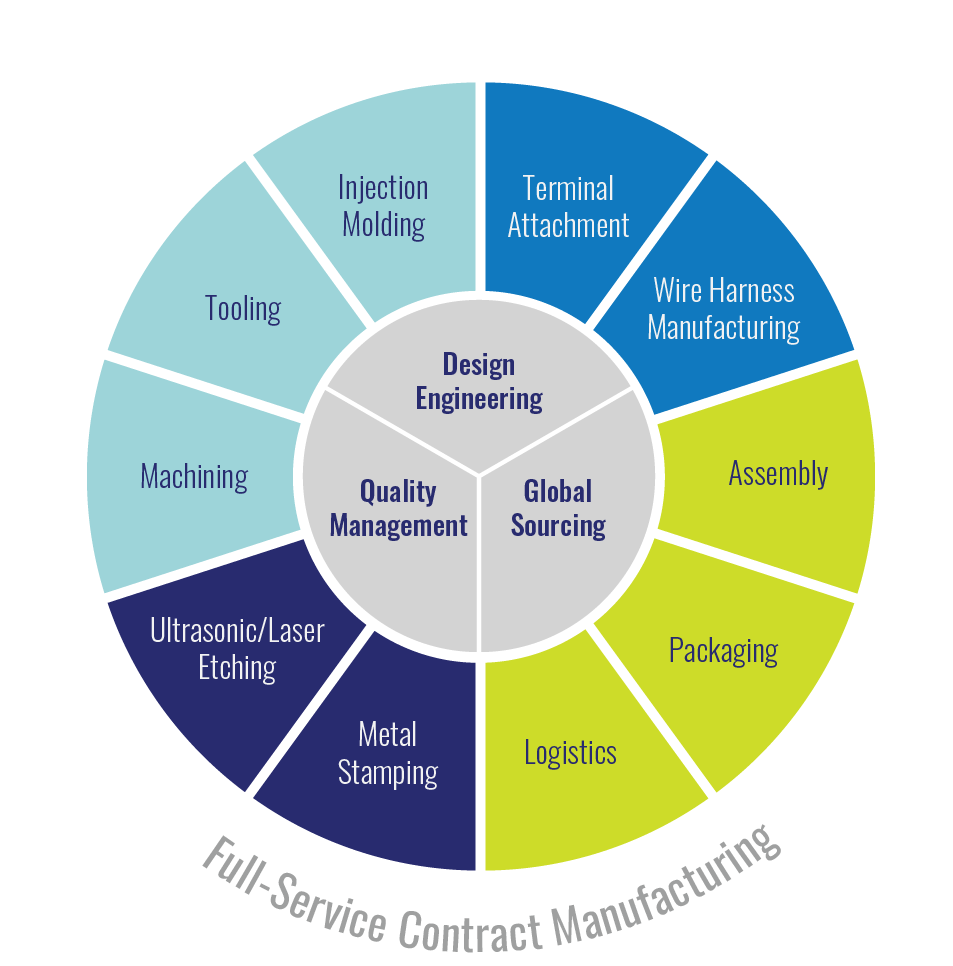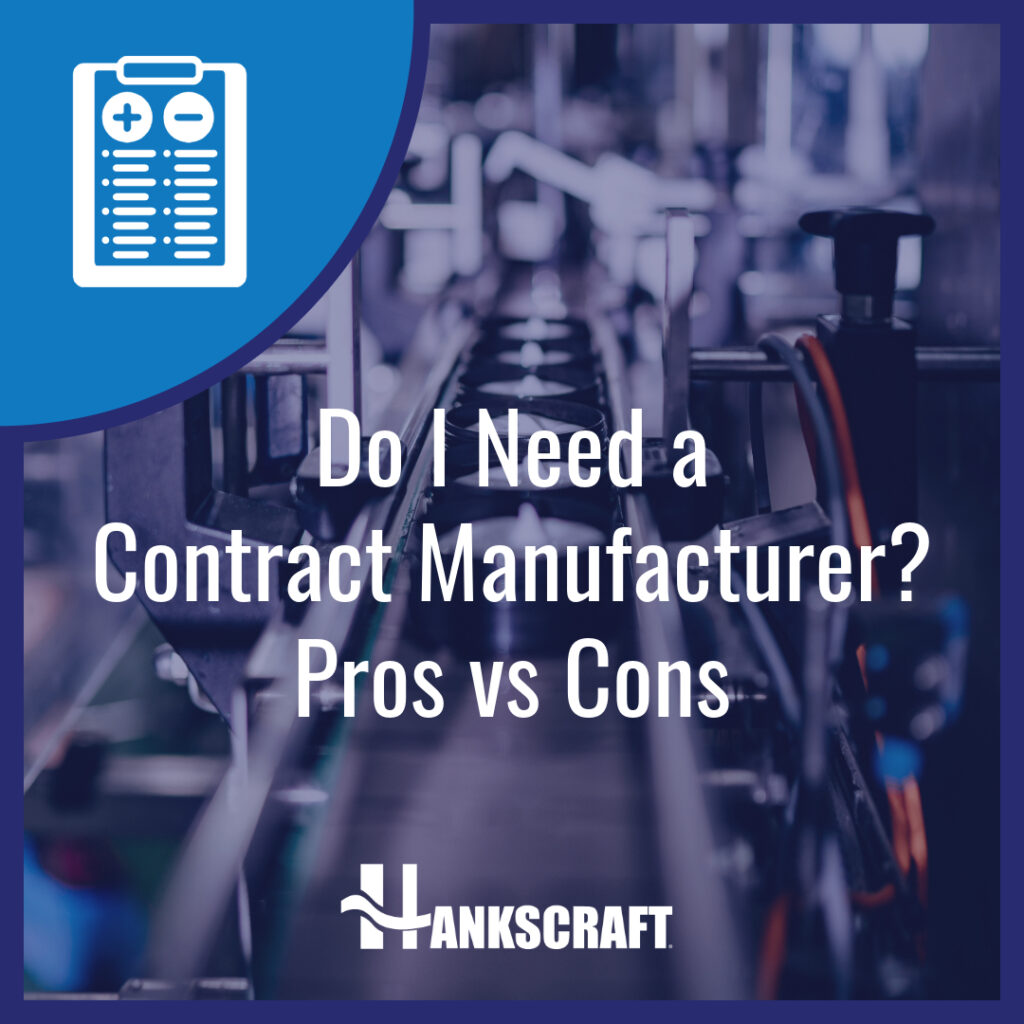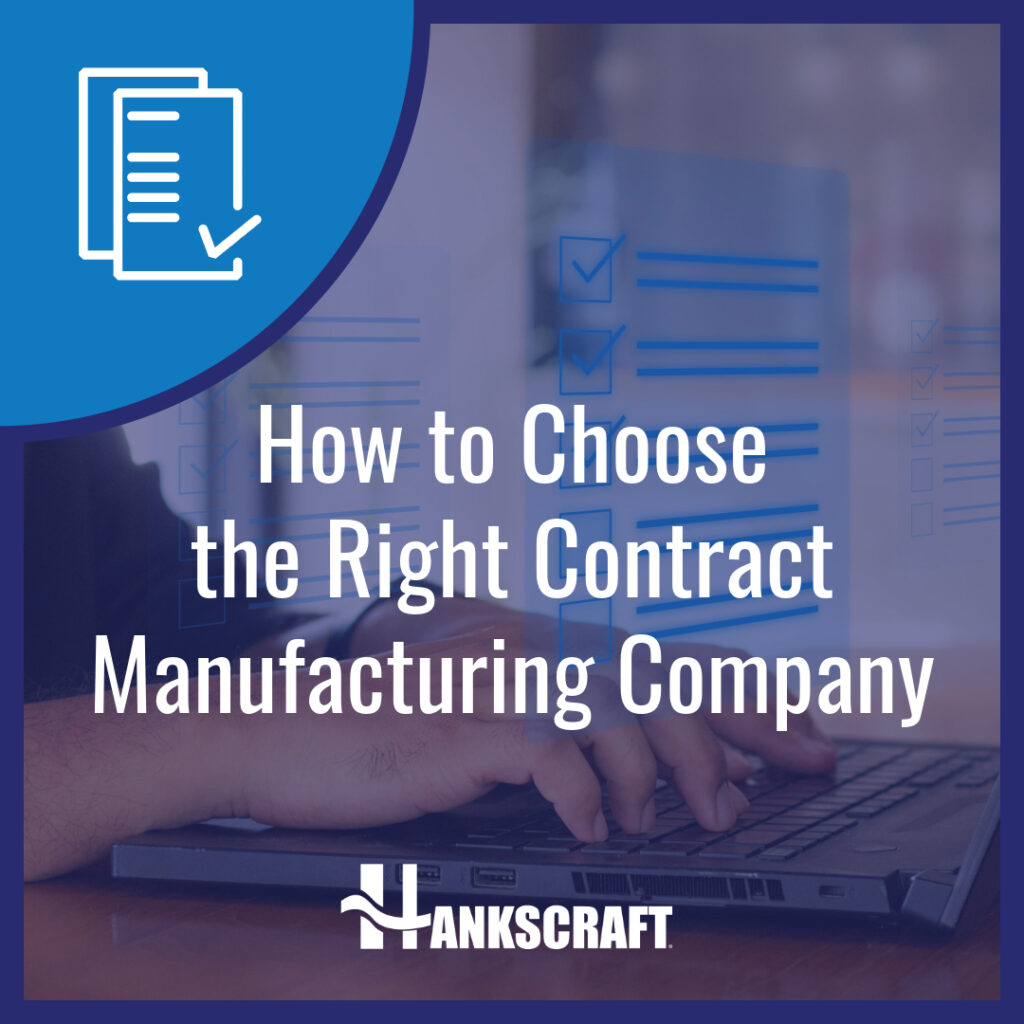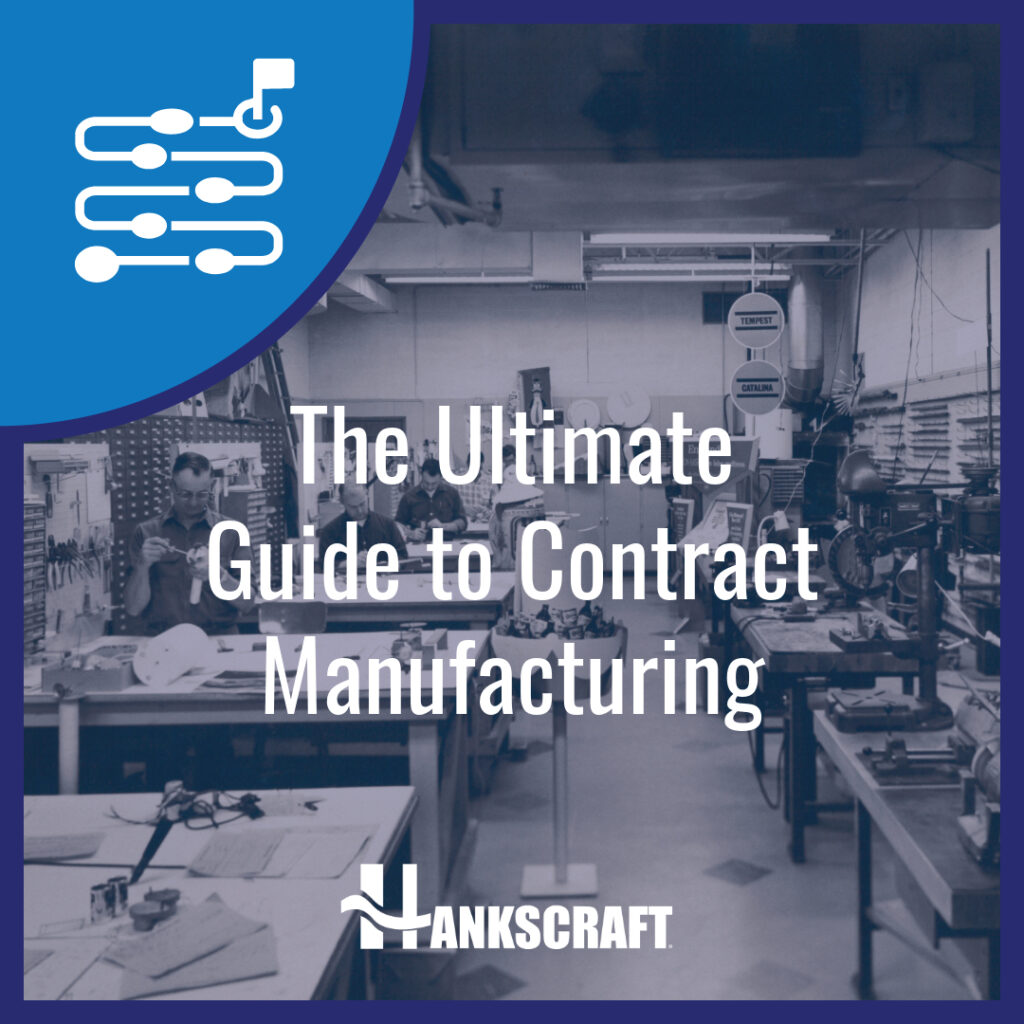What is Contract Manufacturing?
Companies hire contract manufacturers for various services, like design, engineering, assembly, etc., to meet specific customer needs. It focuses on unique items that need specific input from the customer. This method offers flexibility, personalization, and high quality. Contract manufacturing is specifically ideal for a broad range of industries needing innovation and custom solutions. But finding the ideal contract manufacturing company for your project can be like looking for a needle in a haystack. If you’re struggling to find a contract manufacturing company for your project, keep reading.
How to Find a Contract Manufacturing Fit: Assess Your Project
Many contract manufacturing companies have different types of industries and projects. In order to find contract manufacturing services for your project, assess your project thoroughly. That way, you know who the best partner for you will be before you start your search. Ask yourself the following questions:
Does My Project Have a Specific Timeline?
This may be obvious, but time to market should be one of the first things you ask about with contract manufacturing companies. Communicating honestly about your project needs and expectations up front will certainly save time in the interview and evaluation stage.
A reputable contract manufacturing company will strive to deliver a solution that meets your expectations. In your process of evaluating different companies, watch for a realistic balance of cost, quality, and time to market. Undeniably, this is a sign of a good, reliable contract manufacturing partner.
What Contract Manufacturing Services and Capabilities Do I need?
If you’re struggling to find contract manufacturing for your project, think about your company resources, scalability, industry, and project type. Depending on these factors, you will need to find varying levels of services to make your product. Contract Manufacturing services to shop for may include engineering services, such as design for manufacturability, testing, engineering, prototyping, and regulatory compliance. Other product development services could include contract assembly, supply chain management, etc. Generally, broad service offerings are one of the advantages of contract manufacturing.
Meanwhile, not all contract manufacturing companies offer the same services and capabilities. In fact, it can be vastly different from company to company.
However, some companies offer full-service contract manufacturing, helping you from idea concept to product delivery. Others will offer only coordination and communication services, serving as a broker to manufacturing companies.
Assess your capacity to manage manufacturing tasks before you begin your search. If you have low capacity, look for full-service contract manufacturing partner. Ideally, this type of partner will have the potential to increase your scalability as you grow your business and bring your product to market.
What if I Haven’t Assessed My Project or Don’t Know How?
Are you an entrepreneur or business in the beginning stages? You may be looking for guidance in preparing your product for manufacturing. Some contract manufacturing companies offer full-service manufacturing services and capabilities. This includes the initial stages of getting a product ready for manufacturing, like planning, design, and project management.

How to Find Contract Manufacturing Services: Prepare
Below are stages of manufacturing readiness to consider when searching for a manufacturing partner. Whether you do it yourself or hire custom manufacturing services, complete the following steps before making a final product:
1. Validate your Project
- Confirm that the product idea is viable and has a market demand.
- Develop preliminary sketches or CAD models of the product.
- Conduct feasibility studies for technological manufacturing resources, market research and profitability.
2. Prototyping and Testing
- Create a statement of work that details your product idea and its specifications
- Create 3D models and 2D drawings for the various components within your product.
- Develop, test and redesign prototypes to refine the product.
3. Material and Component Sourcing
- Document a list of suppliers for those materials.
- Create a cost estimate for the materials.
4. Manufacturing Process Planning
- Determine the manufacturing capabilities that fit your project needs, i.e., CNC machining, injection molding, etc.
- Outline each step of the manufacturing process.
- Assess costs of tooling and equipment.
5. Quality Assurance Planning
- Know the project’s quality standards, certifications, or specifications.
- Develop inspecting and testing procedures for production.
6. Cost Analysis and Budgeting
- Break down the total cost into material, labor, overhead, and other expenses.
- Allocate budget for each phase of production, including contingencies.
7. Documentation Preparation
- Create detailed technical documentation, including drawings, specifications, and process flows.
- Create a comprehensive Bill of Materials (BOM) listing all components and materials required.
- Draft a detailed Request for Proposal (RFP) document to send to potential manufacturers, including all necessary specifications.
8. Internal Review and Approval
- Present the finalized plans and documentation to stakeholders for review and approval.
- Secure necessary approvals from key decision-makers within the company.
9. Pre-Production Planning
- Plan for initial pilot runs to validate the manufacturing process.
- Lastly, assess the scalability of the production process to meet future demand.
Certainly, you or your company don’t need to take all these steps without assistance. Equip your team to handle all these stages by contacting a full-service contract manufacturing company. As a result, you’ll be able to easily navigate the steps in preparation for manufacturing.
Where to Find Contract Manufacturing: Domestic VS International
Don’t assume one option is right for your market, product, or company before doing research. Understand there is a range of scenarios and variables. To narrow down a large list of manufacturing options, consider these key differences between offshore or onshore manufacturing:
Benefits of International Manufacturing
- Reduced costs: Generally, a lower cost of labor can increase project savings.
- More options for selection: Expanding the search area for manufacturing undoubtedly opens the volume of partnership opportunities.
- Greater range of capabilities: Many other countries offer different or more appealing capabilities than the limits of domestic.
- Greater specialization: In general, some countries have a reputation for quality in their niche specialization.
- Higher volume production: Opening your search beyond local borders may find you capabilities for larger volume. Subsequently, this can conserve costs down the line.
Benefits of Domestic Manufacturing
- Time zone similarity: Depending on your location, staying domestic can eliminate a tricky and time-consuming communication barrier.
- Political and economic stability: You may benefit from the assurance of avoiding shifting tariffs and trade agreements.
- Reduced shipping costs and delay: Generally, a shorter distance means cost and transit time savings for shipping.
- Quality Control: Depending on location circumstances, a domestic manufacturing partner may have less complex visitation benefits, resulting in better quality monitoring.
- Supply chain simplicity: A domestic manufacturing agreement may be less complex and time-consuming than international manufacturing.
Additionally, choosing a global contract manufacturing company with a wholly owned facility overseas provides a combination of benefits. Adopted by Hankscraft Inc., this flexible structure offers the benefits of domestic and international manufacturing under one trusted manufacturing partner.
All things considered, be sure to research your competition and industry. This will help to determine what option might fit your product manufacturing demands.

Where to Look for a Contract Manufacturing Partner
Once you’re ready to start looking for and comparing contract manufacturing companies, conduct thorough research. Below are a few methods for search:
- Attend industry trade shows: Often, contract manufacturing companies will appear at industry trade shows or manufacturing-specific trade shows.
- Search online directories: ThomasNet, GlobalSpec, and MNI are a few of many online data bases that offer search capabilities for manufacturers.
- Search industry publications: Industry Today, Contract Manufacturing and Packaging Magazine, Manufacturing Dive, and Assembly Magazine are a few top manufacturing publications.
- Ask your personal network
- Post an RFP
Contact Hankscraft
Contact us today to explore how Hankscraft can help you find the contract manufacturing solutions for your project. Our team acts as an extension of your team, because we’re dedicated to providing personalized solutions and seamless project management. Let us simplify your workload, thus improving your project outcome with our expertise and resources.
Learn More
Download your free PDF resource
Ensure you’re equipped with the essential questions for your upcoming meetings. Don’t miss out on this valuable resource to help you make informed decisions and find the perfect manufacturing partner for your project.





